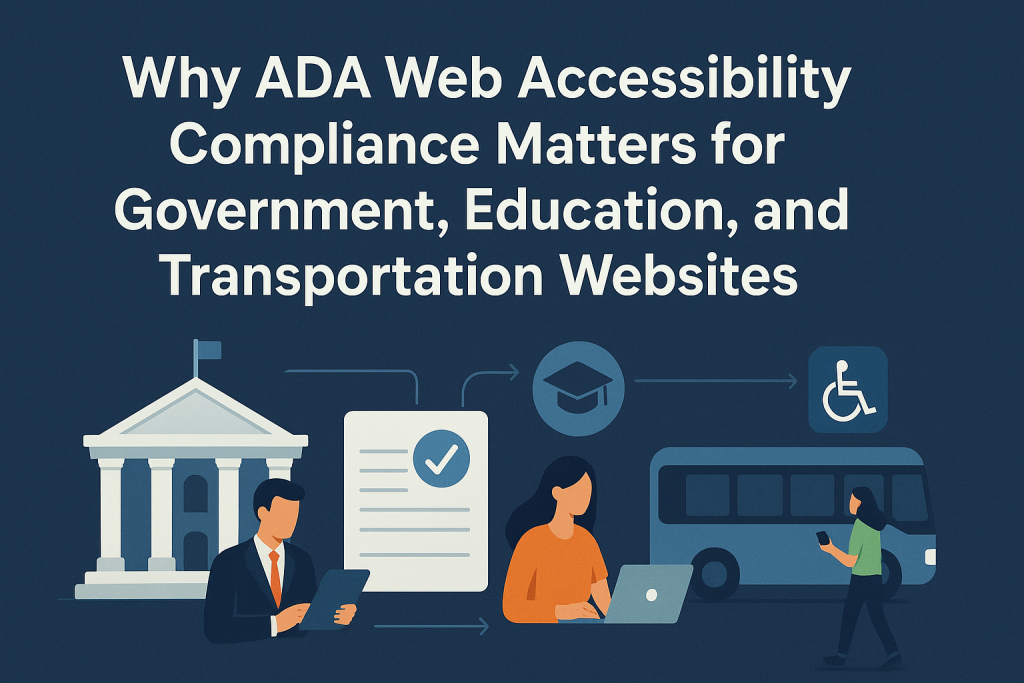
Introduction
The Americans with Disabilities Act (ADA) requires that state and local government websites and mobile apps be accessible to all. In April 2024, the DOJ finalized a rule under Title II of the ADA that sets enforceable technical standards. With compliance deadlines taking effect in 2025, accessibility has become a legal, operational, and ethical priority for public sector organizations.
Equal Access to Public Services
Public services are increasingly delivered online. Citizens depend on accessible digital platforms to:
- Enroll in healthcare programs
- Apply for jobs or educational opportunities
- Pay bills and taxes
- Access transportation schedules and services
- Register to vote
Without accessibility, many individuals are excluded from essential services, undermining the core mission of public agencies.
Legal and Financial Risk
The DOJ’s new rule empowers enforcement actions against non-compliant agencies. Failure to meet standards could lead to:
- Lawsuits and penalties
- Reputational harm
- Increased remediation costs once violations are found
Proactive compliance avoids these risks and demonstrates accountability.
Inclusivity and Public Trust
Accessible websites reflect a commitment to equity. Citizens with disabilities—whether they are students, patients, commuters, or voters—should not face barriers to public participation. A compliant website builds public trust by ensuring everyone can interact with government, education, and transportation systems on equal terms.
Operational Efficiency
Accessibility often improves overall usability. Features like structured headings, keyboard navigation, and clear labeling help all users, not just those with disabilities. This improves citizen satisfaction, reduces support requests, and streamlines service delivery.
Looking Ahead to 2025
The DOJ ADA rule is not just a compliance requirement—it is an opportunity for agencies to modernize digital services. By embedding accessibility into design, development, and content practices, public sector organizations create future-ready platforms that serve all citizens effectively.

Conclusion
ADA compliance is about more than avoiding lawsuits; it is about ensuring that public sector digital services are inclusive, equitable, and trustworthy. Government, education, and transportation agencies must take decisive action before the 2025 deadlines.
📞 Do not wait for the DOJ’s 2025 deadlines.
SingTone Technologies has proven experience helping government, education, and transportation agencies meet digital accessibility standards while improving overall usability. From accessibility roadmaps to ongoing compliance monitoring, SingTone shall provide the expertise and support your organization requires.
➡️ Reach out now to learn how SingTone can partner with your agency to build fully compliant, inclusive digital services.

